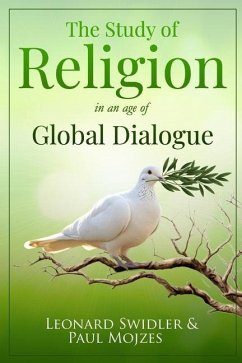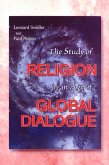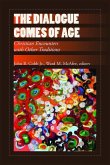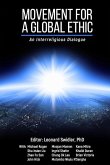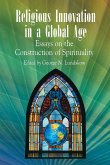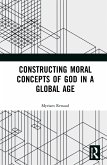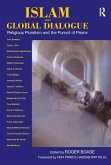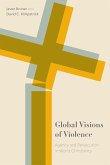Join renowned scholars Swidler and Mojzes on a compelling exploration of religion's pivotal role in shaping human consciousness and the dawn of a new global ethic, reshaping our understanding of life itself. This book offers a profound journey into understanding the essence of religion and its transformative role in human history and consciousness. This insightful book delves into the fundamental nature of religion, presenting it as not just an aspect, but the bedrock of human experience, influencing and reflecting the core of every civilization. Through a detailed exploration, the authors elucidate how religion shapes our understanding of life, culture, and history. The book presents religion as an intricate system encompassing the four C's: Creed, Code of behavior, Cult, and Community-structure, offering an explanation of life's ultimate meaning and guiding principles for living in alignment with the Transcendent. The narrative then transitions to the dawn of a new epoch in human consciousness-The Age of Global Dialogue. This era signifies a revolutionary shift in perception, reshaping our understanding of life and religion. In this context, the authors examine the emergence of a Global Ethic, a set of universally acknowledged ethical principles born from this global dialogue. This examination is not just academic but aims to equip readers with the knowledge to make informed decisions about life's meaning and their behavior and conduct. Authored by distinguished scholars, Professor Leonard Swidler and Dr. Paul Mojzes, the book brings together over half a century of expertise in interfaith dialogue and religious studies. Professor Swidler, a pioneer in the field, has extensively contributed to global ethics and interfaith dialogue, while Dr. Mojzes, with his rich background in religious studies, brings a unique perspective to the narrative. Together, they offer readers an enlightening perspective on religion's role in the modern world, making this book an essential read for anyone seeking to understand the complex interplay of religion, culture, and ethics in the contemporary global landscape. "[T]his study uniquely suggests...a dialogical approach to the study of religion and suggests a global ethic as a viable beginning."--William Cenkner, Katharine Drexel Professor of Religion. The Catholic University of America "Both dialogue and a global ethic have been discussed elsewhere, but linking them together and then combining them with the study of religion is this book's genuinely distinctive achievement. This accomplishment makes a major contribution to a singularly important discussion."--Walter Conn, Professor Theology and Religious Studies, Villanova University Leonard Swidler is a global theologian who has pioneered and contributed to the field of interfaith dialogue for more than 50 years. He is a professor of religion at Temple University since 1966 and is the Editor-in-Chief of the Journal of Ecumenical Studies and the founder of the Dialogue Institute. He has written more than 200 papers and 90 books. Dr. Swidler has contributed to establishing the theoretical foundations of global ethics with Hans Küng since the 1990s, and the Dialogue Decalogue, his proposed interfaith dialogue has been translated into many languages. It is described as the most convincing theoretical basis for conducting Dialogue. Paul Mojzes, PhD was the Provost and the Chair of the Religious Studies and Humanities Department at Rosemont College, in Rosemont, Pennsylvania. A native of Yugoslavia, Dr. Mojzes is the co-editor of the Journal of Ecumenical Studies and founder and co-editor of Occasional Papers on Religion in Eastern Europe. He is the author of six books including his most recent Balkan Genocides: Holocaust and Ethnic Cleansing in the Twentieth Century. Dr. Mojzes has lectured at universities throughout the United States, Europe, and Asia.
Bitte wählen Sie Ihr Anliegen aus.
Rechnungen
Retourenschein anfordern
Bestellstatus
Storno

